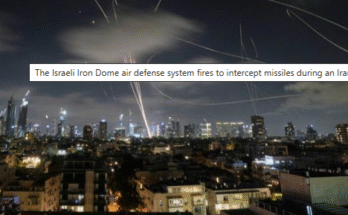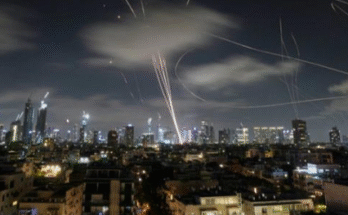
🧠 Thought-Provoking
> “A Trump–Putin phone call. A birthday wish. And a plan to stop two wars. Coincidence? Or calculated diplomacy?” > What do you think—is this real movement toward peace?
Former U.S. President Donald Trump recently revealed that he held a one-hour phone call with Russian President Vladimir Putin on June 15, during which they discussed a range of pressing global conflicts, including the escalating tensions between Israel and Iran, and the ongoing Russia-Ukraine war.
According to Trump’s statement on Truth Social, the call was initially prompted by Putin wishing him a happy 79th birthday—something Trump described as being done “very nicely.” However, the conversation quickly turned toward international diplomacy. Trump emphasized that a significant portion of the discussion centered on the Middle East, especially the confrontation between Israel and Iran. He claimed that both he and Putin agreed that the conflict “should end,” expressing a shared perspective on the need for de-escalation in the region.
Interestingly, Trump indicated that considerably less time was spent discussing the war in Ukraine. He noted that more substantive conversations regarding the Russia-Ukraine situation are scheduled for the following week, signaling that ongoing diplomatic channels may be in motion. Nonetheless, Trump used the opportunity to urge Putin to end what he referred to as “his war,” highlighting his view that peace should prevail in both the Middle East and Eastern Europe.
Trump also mentioned that Steve Witkoff, a White House envoy, stands ready to resume nuclear talks with Iran. This suggests the former president is attempting to facilitate or at least publicize a return to dialogue regarding Iran’s nuclear program—an issue that has long been a flashpoint in U.S. foreign policy.
A statement from the White House echoed the focus on peace. It emphasized that both Trump and Putin discussed the need for a ceasefire and highlighted the extensive human and economic costs of war. The statement advocated for the redirection of national resources from conflict toward the welfare of citizens and stressed the importance of improving U.S.-Russia relations.
Putin’s side released a more expansive statement, which included additional geopolitical concerns. The Kremlin referenced talks not only about the Middle East but also the Red Sea region, nuclear non-proliferation, and broader global security issues. According to Russia’s readout, both leaders expressed intentions to cooperate on international stability and improve bilateral relations. The Kremlin also suggested that peace efforts would begin with ceasefires in energy and infrastructure sectors and technical discussions around maritime peace in the Black Sea.
Taken together, the reports from both parties paint a picture of cautious engagement between two powerful global figures. While critics may question the effectiveness or optics of such diplomacy—especially given the complex and violent nature of the conflicts at hand—it’s clear the call was meant to position Trump as an active player on the international stage, amid persistent and evolving geopolitical instability. Whether these words will be matched with actionable outcomes remains to be seen.


